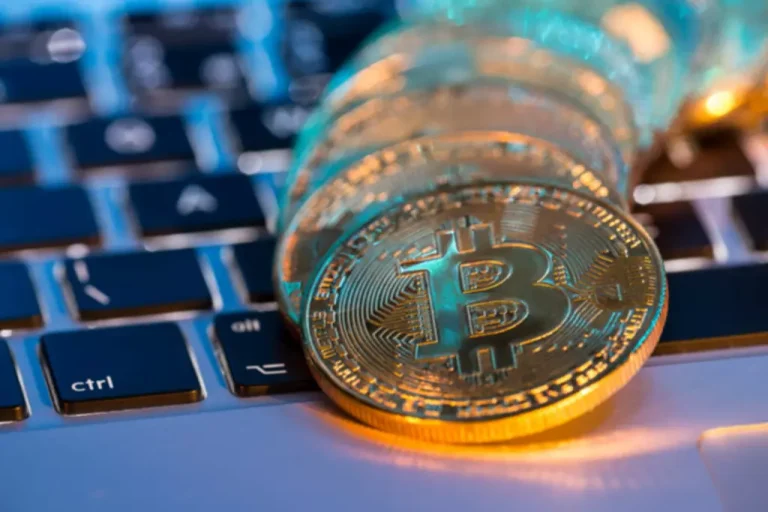For lucky miners, the Bitcoin rewards are more than enough to offset the costs involved. If you win the right to create a block, it might not be worth the risk of tampering with the records and having your submission thrown out — forfeiting the reward. In this instance, spending the money on energy costs in an attempt to tamper with the historical record would have resulted in significant loss.
When you first set up a hardware wallet, you are given a recovery phrase, which is a list of words that you use to recover your accounts. This provides a way to access your assets should you lose your physical wallet. You must, of course, be sure to safely store your recovery phrase and have access to it for this loss-prevention strategy to work. Should what is a crypto wallet you lose both your wallet and your recovery phrase, you will likely lose your assets. Software wallets are sometimes called “hot” wallets because the funds are kept online. An investor’s public and private crypto wallet keys are necessary to use their crypto assets, whether that’s trading them for other currencies or spending them on goods and services.
As most blockchains are transparent, it is easy to find out how much money a certain cryptocurrency wallet has, as well as the transactions the owner has previously made. Before we even get into it, though, I can tell you – if you find yourself looking for a reliable wallet, you can’t go wrong with hardware devices, since they offer the highest form of security possible. Specifically, you should turn to Ledger and Trezor – the two leading hardware wallet providers in the industry. Anyone with the seed phrase is able to gain full control of the funds held in that wallet. In a case scenario where the seed phrase is lost, the user also loses access to their funds. So it is imperative to keep the mnemonic phrase in a secure location, and to not store a digital copy of it anywhere.
Desktop and mobile wallets require downloading the specific app, while web-based wallets need a simple sign-up. For years, digital exchanges were the only places to buy and store cryptocurrency. But, as interest in crypto continues to rise, many digital exchanges have emerged to allow users to buy, sell, or trade them. Some, like Coinbase, offer rewards similar to a savings account at a traditional bank, such as a 2 percent APY (annual percentage yield) on the total value of the digital holding kept in the exchange. Be sure to read the fine print, however, as exchanges include asset-based fees. Each type of wallet has its strengths and weaknesses, and the best choice depends on your individual needs and circumstances.
A cryptocurrency wallet is an application that functions as a wallet for your cryptocurrency. It is called a wallet because it is used similarly to a wallet you put cash and cards in. Instead of holding these physical items, it stores the passkeys you use to sign for your cryptocurrency transactions and provides the interface that lets you access your crypto. This is a physical device that has the sole purpose of storing your private and public crypto keys within the hardware. A private key does the exact same job and it is linked specifically to the individual crypto wallet address. When starting a non-custodial wallet, the user is asked to write down and safely store a list of 12 randomly generated words, known as a ‘recovery’, ‘seed’, or ‘mnemonic’ phrase.
They allow you to store your private keys and make transactions easily from your device. The process of using a crypto wallet for cryptocurrency transactions will depend on the type of wallet you have. Still, it’s generally a straightforward process, not unlike how you’d send any other currency digitally.
A cryptocurrency wallet is a software program that enables users to securely store, manage, and transfer their digital assets, such as Bitcoin, Ethereum, and other cryptocurrencies. These are just a few of the popular cryptocurrency wallets available today. When choosing a wallet, consider factors like security features, ease of use, supported cryptocurrencies, and your specific needs for storing and managing digital assets. Always ensure that you download wallets from official sources to avoid potential scams or security risks.
However, by entering your private pin number, you verify that you own the funds and so they can move the funds from your account to the account of the store. However, a cryptocurrency wallet address does not reveal the real-world identity of its owner, which is why the blockchain is referred to as “pseudonymous”. Nevertheless, by obtaining a crypto wallet, you will have the ability to send and receive Bitcoin and other cryptocurrencies (there are now more than 20,000!). A user’s cryptocurrency is only as safe as the method they use to store it. While crypto can technically be stored directly on an exchange, it is not advisable to do so unless in small amounts or with the intention of trading frequently.

The best practice to store cryptocurrency assets that do not require instant access is offline in a cold wallet. However, users should note this also means that securing their assets is entirely their own responsibility — it is up to them to ensure they don’t lose it, or have it stolen. While a public key is like a bank account number and can be shared widely, the private key is like a bank account password or PIN and should be kept secret.
- As Bitcoin and other cryptocurrencies are not physical money, they are digitally stored on the blockchain.
- It is an investment platform to buy, sell, and earn interest on your cryptocurrency holdings.
- These are often the preferred wallet type among crypto enthusiasts because they don’t involve a third party to secure your private keys.
- These devices resemble a USB drive, and modern hardware wallets have several features.
If you only trust your infrastructure, he says it makes sense to have desktop wallets like Electrum and Wasabi Wallet created. This avoids involving a third party and lets you be solely responsible for your wallet’s security. “Coins and tokens are part of a blockchain system in the form of data, and the wallets serve as a means to access them,” says Martin Leinweber, digital asset product strategist at MarketVector Indexes. BitDegree Learning Hub aims to uncover, simplify & share Web3 & cryptocurrency education with the masses.

As the cryptocurrency market continues to evolve, we can expect even more innovative features and advanced concepts to emerge in the realm of cryptocurrency wallets. In this section, we delve into the crucial aspect of securing your cryptocurrency wallet, a fundamental practice for cryptocurrency traders, financial analysts, and fintech professionals alike. As the cryptocurrency market https://www.xcritical.in/ trends continue to evolve, ensuring the safety of your digital assets is essential in your cryptocurrency trading strategy. The first step to securing your cryptocurrency wallet is understanding its vulnerability. Just like a real wallet, a cryptocurrency wallet can be lost, stolen, or damaged. However, unlike physical money, once digital assets are lost, they cannot be recovered.
Always prioritize security and discretion when handling your cryptocurrency wallet backups. Whether you’re a seasoned crypto veteran or a newcomer looking to explore this financial frontier, this guide will empower you to navigate the world of cryptocurrency wallets with confidence. If you have read my guide so far, you should now have a good understanding of what a cryptocurrency wallet is and how public and private keys are linked to a public wallet address. However, you might remember earlier that I said the coins aren’t actually physically stored in the wallet? Essentially, each individual cryptocurrency wallet address (remember, no two addresses can be the same) each have a unique private and public key.
These wallets interact with various blockchains, allowing users to wirelessly send, receive, and manage their digital assets. The wallet also serves as a digital signature, an identifier of your identity on the blockchain. You should consider using a hardware wallet if you plan to hold your crypto for a long time or if you’re holding large amounts of cryptocurrency. Currently, most hardware wallets allow you to set up a PIN code to protect your device, as well as a recovery phrase – which can be used in case your wallet is lost. The private key gives access to your cryptocurrencies, regardless of which wallet you use.


No responses yet